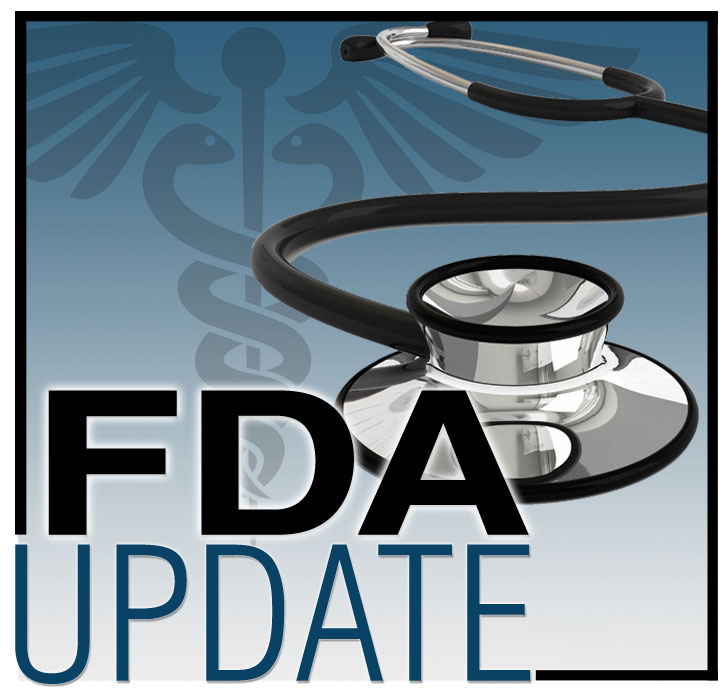FDA Approves Olaparib Tablets for Maintenance Treatment in Ovarian Cancer

On August 17, 2017, the U.S. Food and Drug Administration (FDA) granted regular approval to olaparib tablets (Lynparza®, AstraZeneca) for the maintenance treatment of adult patients with recurrent epithelial ovarian, fallopian tube, or primary peritoneal cancer, who are in a complete or partial response to platinum-based chemotherapy.
With the addition of the new indication, a tablet formulation of olaparib is introduced. FDA approved olaparib capsules in 2014 for the treatment of patients with deleterious or suspected deleterious germline BRCA-mutated advanced ovarian cancer who have been treated with three or more prior lines of chemotherapy. On August 17, the FDA also approved olaparib tablets for this indication. Olaparib tablets and capsules are not interchangeable. Olaparib capsules are being phased out of the U.S. market and will be available only through the Lynparza Specialty Pharmacy Network.
The approval in the maintenance setting was based on two randomized, placebo-controlled, double-blind, multicenter trials in patients with recurrent ovarian cancers who were in response to platinum-based therapy.
SOLO-2 (NCT01874353) randomized 295 patients with recurrent germline BRCA-mutated ovarian, fallopian tube, or primary peritoneal cancer (2:1) to receive olaparib tablets 300 mg orally twice daily or placebo. SOLO-2 demonstrated a statistically significant improvement in investigator-assessed progression-free survival (PFS) in patients randomized to olaparib compared with those who received placebo, with a hazard ratio (HR) of 0.30 (95% CI: 0.22, 0.41; p<0.0001). The estimated median PFS was 19.1 and 5.5 months in the olaparib and placebo arms, respectively.
Study 19 (NCT00753545) randomized 265 patients regardless of BRCA status (1:1) to receive olaparib capsules 400 mg orally twice daily or placebo. Study 19 demonstrated a statistically significant improvement in investigator-assessed PFS in patients treated with olaparib vs. placebo with a HR of 0.35 (95% CI: 0.25, 0.49; p<0.0001). The estimated median PFS was 8.4 months and 4.8 months in the olaparib and placebo arms, respectively.
The most common adverse reactions (≥20%) in clinical trials were anemia, nausea, fatigue (including asthenia), vomiting, nasopharyngitis, diarrhea, arthralgia/myalgia, dysgeusia, headache, dyspepsia, decreased appetite, constipation, and stomatitis. The most common laboratory abnormalities (≥25%) were decrease in hemoglobin, increase in mean corpuscular volume, decrease in lymphocytes, decrease in leukocytes, decrease in absolute neutrophil count, increase in serum creatinine, and decrease in platelets.
The recommended olaparib tablet dose for both the maintenance therapy and later line treatment setting is 300 mg (two 150 mg tablets) taken orally twice daily with or without food.
Full prescribing information is available (https://www.accessdata.fda.gov/drugsatfda_docs/label/2017/208558s000lbl.pdf).
FDA granted this application Fast Track status. A description of FDA expedited programs is in the Guidance for Industry: Expedited Programs for Serious Conditions-Drugs and Biologics (http://www.fda.gov/downloads/drugs/guidancecomplianceregulatoryinformation/guidances/ucm358301.pdf).
Healthcare professionals should report all serious adverse events suspected to be associated with the use of any medicine and device to FDA’s MedWatch Reporting System by completing a form online (http://www.fda.gov/medwatch/report.htm), by faxing (1-800-FDA-0178) or mailing the postage-paid address form provided online, or by telephone (1-800-FDA-1088).
Follow the Oncology Center of Excellence on Twitter @FDAOncology (http://www.twitter.com/@fdaoncology).
Check out recent approvals at the OCE’s new podcast (http://www.fda.gov/DISCO), Drug Information Soundcast in Clinical Oncology (D.I.S.C.O.).
In collaboration with the FDA and as a service to our members, ONS provides updates on recent FDA approvals and other important FDA actions (e.g., updated safety information, new prescribing information) pertaining to therapies for patients with cancer. This allows the agency to inform oncologists and professionals in oncology-related fields in a timely manner. Included in the FDA updates is a link to the product label or to other sites for additional relevant clinical information. In supplying this information, ONS does not endorse any product or therapy and does not take any position on the safety or efficacy of the product or therapy described.
